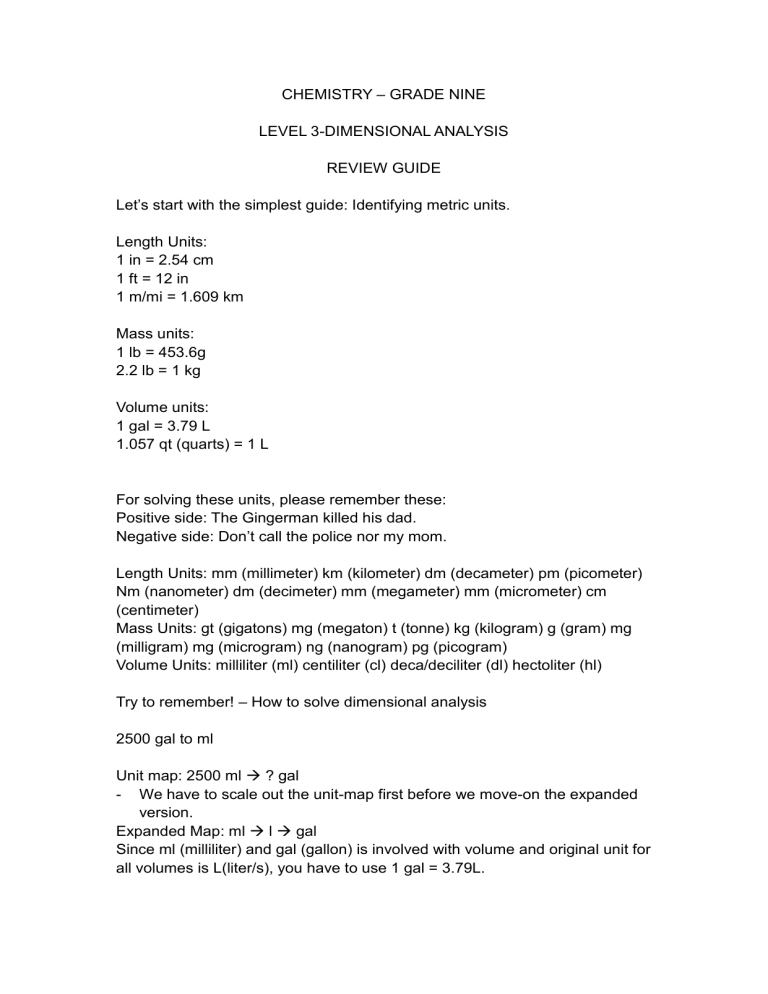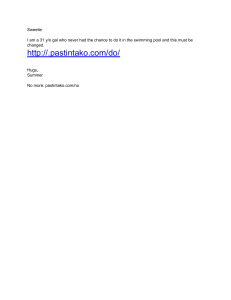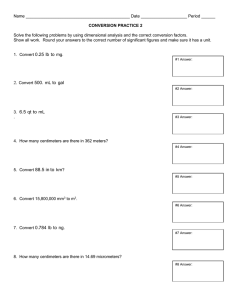
CHEMISTRY – GRADE NINE LEVEL 3-DIMENSIONAL ANALYSIS REVIEW GUIDE Let’s start with the simplest guide: Identifying metric units. Length Units: 1 in = 2.54 cm 1 ft = 12 in 1 m/mi = 1.609 km Mass units: 1 lb = 453.6g 2.2 lb = 1 kg Volume units: 1 gal = 3.79 L 1.057 qt (quarts) = 1 L For solving these units, please remember these: Positive side: The Gingerman killed his dad. Negative side: Don’t call the police nor my mom. Length Units: mm (millimeter) km (kilometer) dm (decameter) pm (picometer) Nm (nanometer) dm (decimeter) mm (megameter) mm (micrometer) cm (centimeter) Mass Units: gt (gigatons) mg (megaton) t (tonne) kg (kilogram) g (gram) mg (milligram) mg (microgram) ng (nanogram) pg (picogram) Volume Units: milliliter (ml) centiliter (cl) deca/deciliter (dl) hectoliter (hl) Try to remember! – How to solve dimensional analysis 2500 gal to ml Unit map: 2500 ml ? gal - We have to scale out the unit-map first before we move-on the expanded version. Expanded Map: ml l gal Since ml (milliliter) and gal (gallon) is involved with volume and original unit for all volumes is L(liter/s), you have to use 1 gal = 3.79L. Conversion Factors: 2500 𝑔𝑎𝑙 × 3.79 𝐿 103 𝑚𝑙 × 1 𝑔𝑎𝑙 1𝐿 As you can see here, we have our gal (gallon) as our primary unit, We are required to multiply to 1 gal = 3.79L, by identifying it, we have to place gal (gallon) as our main unit for cancelling gal to gal. After cancelling gal to gal, we now have L (liter) as our primary unit. So its 2500 x 3.79 now. Next, we cancel the L to L and get left with 10^3 ml. So our final equation is: 2500 x 3.79 x 10^3 = 9.47500 x 10^6 (9.47 x 10^4). (as our final answer). Now you know it, please try to answer the file in the drive file. END.

